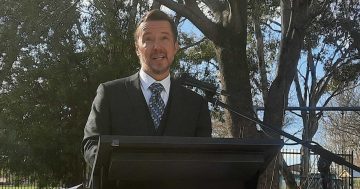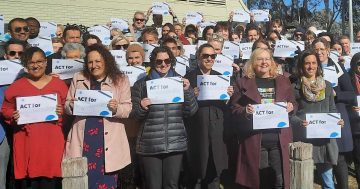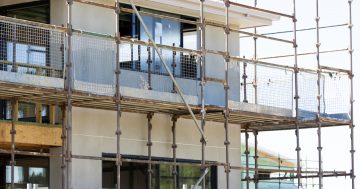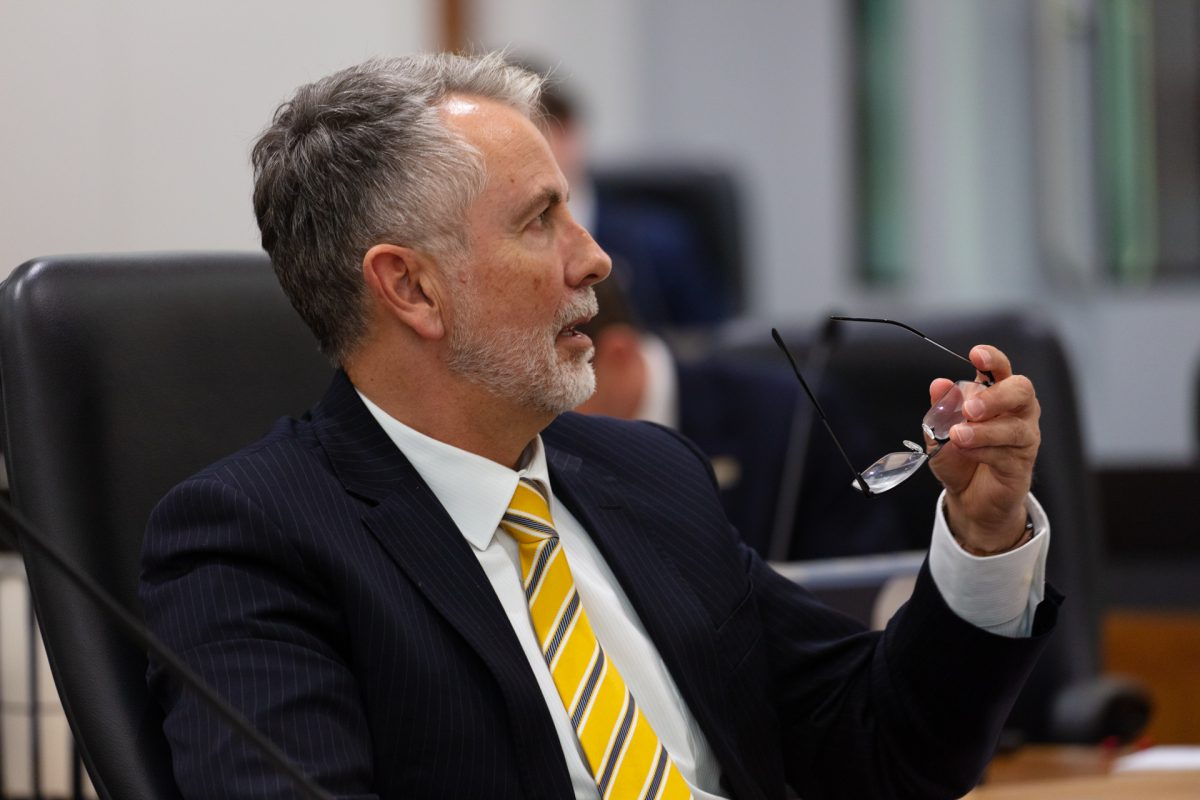
Acting Opposition Leader Jeremy Hanson: same tired promise. Photo: Thomas Lucraft.
The ACT Budget will do nothing to stem the decline in services and cost-of-living pressures Canberrans were feeling, according to the Canberra Liberals.
Acting Opposition Leader Jeremy Hanson said that despite countless budget announcements and promises from this government over the last decade, outcomes across health, education, justice, city services, housing and cost of living continue to decline.
“This budget contains the same tired promises Canberrans have been hearing for over a decade and it is at the point where it is difficult to believe what they say,” Mr Hanson said.
He noted that while there were slight increases in concessions, rates continued to rise and many aspirational Canberrans were being left behind.
Chief Minister Andrew Barr was also disingenuous saying the budget would return to surplus, something he has failed to do in 12 years as Treasurer, Mr Hanson said.
He warned of a debt crunch, saying interest payments alone will be $614 million a year by 2026-27, and repeated claims that the government was ripping millions out of other services to pay for the “tram”.
The Canberra Business Chamber said the budget was a missed opportunity to support 34,000 local businesses struggling with supply and skills shortages, and rampant cost increases.
Chair Archie Tsirimokos said the Chamber acknowledged initiatives for health, housing and to alleviate the cost-of-living crisis, but its 14 budget proposals, 10 of them requiring minimal or no financial investment, had been ignored.
He welcomed support for the Canberra Business Advice and Support Service but said more could be done.
“The ACT Government should work to evolve the nature and scope of support, providing further pathways for local small and medium enterprises,” Mr Tsirimokos said.
The government could also introduce a support program to leverage the existing relationships small businesses have with their professional advisers so greater numbers could be reached.
Mr Tsirimokos called for a long-term skills and workforce plan and investment in better data to support businesses.
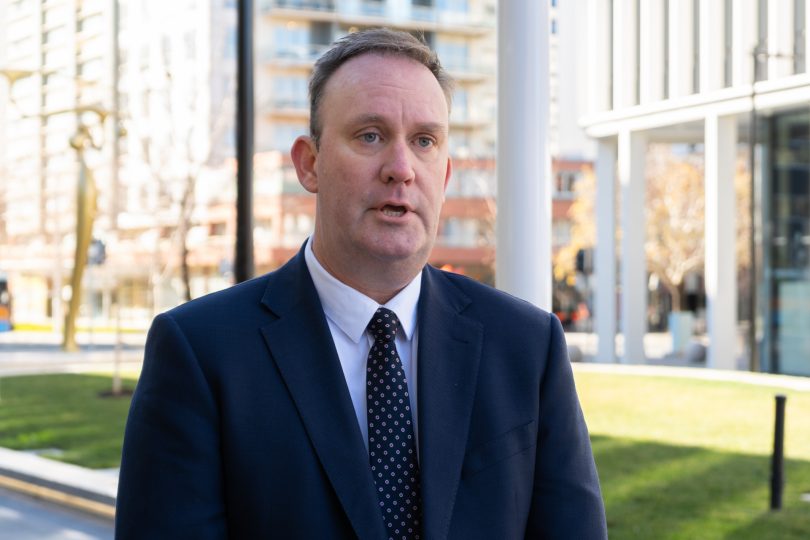
MBA ACT CEO Michael Hopkins said more detail was needed. Photo: Region.
Master Builders ACT CEO Michael Hopkins said the budget assumptions were optimistic and there were real risks that new private housing and infrastructure could not be delivered on time.
Mr Hopkins said support for local apprentices and trainees should have been boosted.
“With no increase in apprentice subsidies, and the removal of programs to attract more women into the construction industry, the ACT Budget fails to explain where the skilled workforce will come from to deliver more housing and infrastructure to support the ACT’s growth,” he said.
“With the Territory Plan still to be finalised and the updated ACT Infrastructure Plan at least 12 months away, there is very little detail in this budget to explain to the ACT community how our housing needs will be met,” he said.
The ACT Council of Social Service (ACTCOSS) welcomed funding for housing, homelessness, mental health and expanded energy concessions, but would like to see a greater role for non-profit community organisations in delivering services.
It also welcomed increases to the taxi subsidy scheme, as well as investments in implementing the Next Steps for Our Kids Strategy and significant funding for programs to improve justice outcomes in the ACT.
ACTCOSS CEO Dr Devin Bowles said that with the exception of housing, most spending appeared to be an expansion of government rather than in frontline community services run by trusted non-profit organisations.
“The community sector already has strong, trusted relationships with the community, including those most in need, and is often best placed to deliver services,” he said.
There was no spending on the Disability Strategy and Disability Health Strategy and limited investment in alcohol and other drug services. ACTCOSS was concerned by the lack of commitment for the long-awaited Review of the Targeted Assistance Strategy.
Better targeted public transport concessions could also have been made.
The ACT Council of Parents and Citizens Associations welcomed several new school initiatives budget but said infrastructure spending was playing catch-up.
It urged the government to place a higher priority on long-term investment in public school infrastructure.
“We’re pleased to see money for some school upgrades and planning for a college in Molonglo. But overall, the spending is not forward-thinking enough,” Council President Alison Elliott said.
“In the case of Gungahlin schools, the spending is going into playing catch-up, providing college and high school places that we’ve been requesting for years and which will now be desperately needed before the schools can be built.”
Ms Elliott called for an ongoing renewal plan for older schools.
She welcomed funding for innovative ‘Inclusion Coaches’ and support for public school canteens to provide healthy food.













